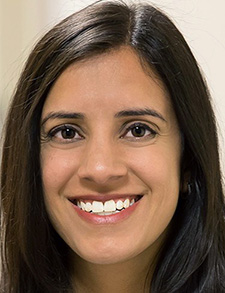
Dr. Choksi
Clinical question: Does using old and new chronic kidney disease epidemiology collaboration (CKD-EPI) equations alone have a better predictive value for two-year incidence of end-stage renal disease (ESRD) compared to using the four-variable kidney failure risk equation (KFRE)?
Background: In response to race-based equations perpetuating racial inequities, CKD-EPI made new estimated glomerular filtration rate (eGFR) equations without race adjustments. The KFRE was developed but there were various barriers to using it.
Study design: Observational, prospective cohort study
Setting: Seven U.S. clinical centers
Synopsis: More than 3,800 patients were enrolled in the chronic renal insufficiency cohort between 2003 and 2006, with monitoring through May 2020 and follow-up data points every two years. Five CKD-EPI equations were calculated, including those updated in 2021, based on serum creatinine and/or cystatin C, with or without race adjustment. Then each eGFR equation was compared for predictive value with the four-variable KFRE.
During the follow-up period, 856 patients developed ESKD, in which Black participants were more likely than non-Black participants to develop ESKD (6.5% [95% CI, 5.3% to 7.7%] versus 5.5% [CI, 4.6% to 6.5%]). The KFRE score was found to be superior for predicting two-year risk for ESKD compared to eGFR alone among Black participants (AUC ranges, 0.945-0.953 versus 0.908-0.927) and non-Black participants (AUC ranges 0.945-0.954 versus 0.900-0.923). A KFRE score greater than 20% showed high specificity and sensitivity for predicting two-year risk for ESKD.
Bottom line: The KFRE was superior to using eGFR alone for ESKD prediction, regardless of which eGFR equation was used and irrespective of race.
Citation: Bundy JD, et al. Prediction of end-stage kidney disease using estimated glomerular filtration rate with and without race: A prospective cohort study. Ann Intern Med. 2022;175(3):305-313. doi:10.7326/M21-2928.
Dr. Choksi is an associate professor of internal medicine and associate dean of admissions at Saint Louis University School of Medicine, St. Louis, Mo.